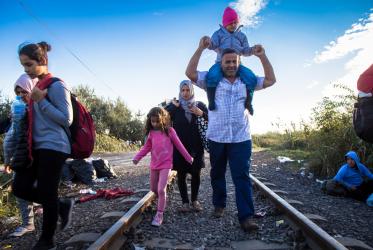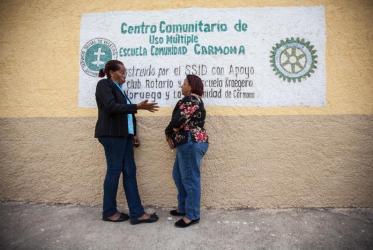Displaying 61 - 80 of 88
Prayer and advocacy for Korean peace and reunification
04 August 2016
New Executive Committee members elected in Trondheim
28 June 2016
International affairs facilitator reflects on pilgrimage
31 March 2016
Symposium focuses on religion, violence, extremism
04 February 2016
At UN, anti-nuclear majorities challenge nuclear-dependent minority
05 November 2015
WCC encourages churches to pray on Hiroshima Day
06 August 2015
Church leaders address statelessness in Dominican Republic
03 February 2015
Momentum builds for ban on nuclear weapons
16 December 2014







